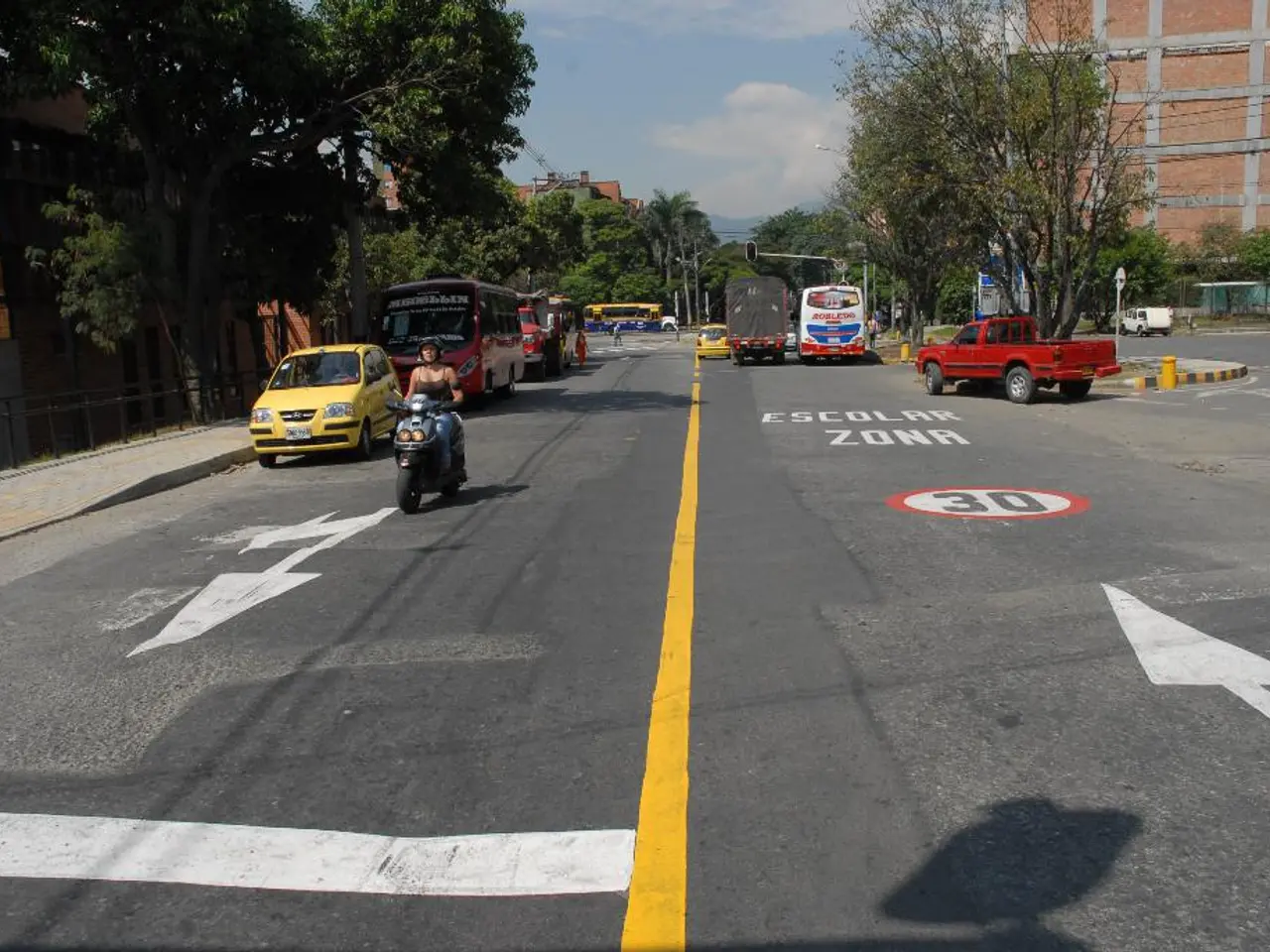Kuwait imposes a tax on international businesses and revises regulations on state-owned properties.
Kuwait has taken a significant step towards fiscal reform by introducing a new tax on multinational corporations, known as the Domestic Minimum Top-up Tax (DMTT). This move aligns with the Organisation for Economic Co-operation and Development's (OECD) Pillar Two requirements and forms part of Kuwait's broader economic reform and fiscal diversification strategy under Kuwait Vision 2035.
The Ministry of Finance issued Decree No. 55 of 2025, providing executive regulations for Law No. 157 of 2024 on taxing multinational enterprise (MNE) groups. The DMTT imposes a minimum top-up tax of 15% on multinational entities with consolidated revenues exceeding approximately KWD 240 million (around US$784 million) in two of the last four tax periods.
The regulations, announced by the Ministry of Finance, aim to establish a fair investment environment and enhance tax justice, supporting Kuwait’s shift away from oil-dependent revenues. Finance Minister Eng. Nora Al-Fusam highlighted that the tax is intended to create a level playing field for all investors, while also ensuring that multinational corporations contribute their fair share to the nation's economy.
Expected revenues from the DMTT are around KD250 million annually (approximately US$825 million), which will contribute to building a sustainable and resilient economy. Local enforcement ensures these revenues remain in Kuwait rather than flowing to other countries, as noted by representatives in the banking sector. This could potentially lead to an increase in corporate profits, with estimates suggesting a rise by 8-15% in 2025 due to this tax.
In addition to the DMTT, the regulations also cover a range of facilities, including chalets, rest houses, shopping malls, cooperative societies, banks, warehouses, sports clubs, schools, and hospitals. The revised fees and valuation models remain lower than GCC averages, reflecting the government's commitment to striking a balance between public interest and fair access for individuals and institutions using public assets.
Minister Al Fassam described the regulations as a "major milestone" in Kuwait's economic reform journey, marking a significant step towards achieving fiscal sustainability. The government has also planned a series of awareness workshops for stakeholders and regulatory authorities in the coming weeks to educate them about the new regulations.
The new tax regulations are part of Kuwait's New Kuwait 2035 vision, which aims to diversify income sources and align with international tax standards. The regulations are also designed to ensure equal opportunities while strengthening the state's non-oil revenue base in a sustainable and transparent manner. Dates for these workshops will be announced soon.
- The new tax regulations in Kuwait, known as the Domestic Minimum Top-up Tax (DMTT), will affect sports clubs as they are among the facilities covered by the regulations.
- The DMTT is expected to bring an estimated $825 million annually to Kuwait's economy, a portion of which could potentially result in an increase of 8-15% in corporate profits, including those in the financial sector.
- The regulations, part of Kuwait Vision 2035, are not just about taxing multinational corporations, but also about fostering a fair investment environment and ensuring tax justice, which aligns with general-news topics.
- The Ministry of Finance has announced a series of awareness workshops for stakeholders and regulatory authorities, as part of an ongoing effort to educate them about the new tax regulations, a move that falls under the business and politics categories.
- The new tax regulations are part of Kuwait's New Kuwait 2035 vision, which extends beyond oil-dependent revenues and into fields such as health, education, and other sectors, making it a broader economic reform strategy that intersects with various areas of food, health, and general-news.







